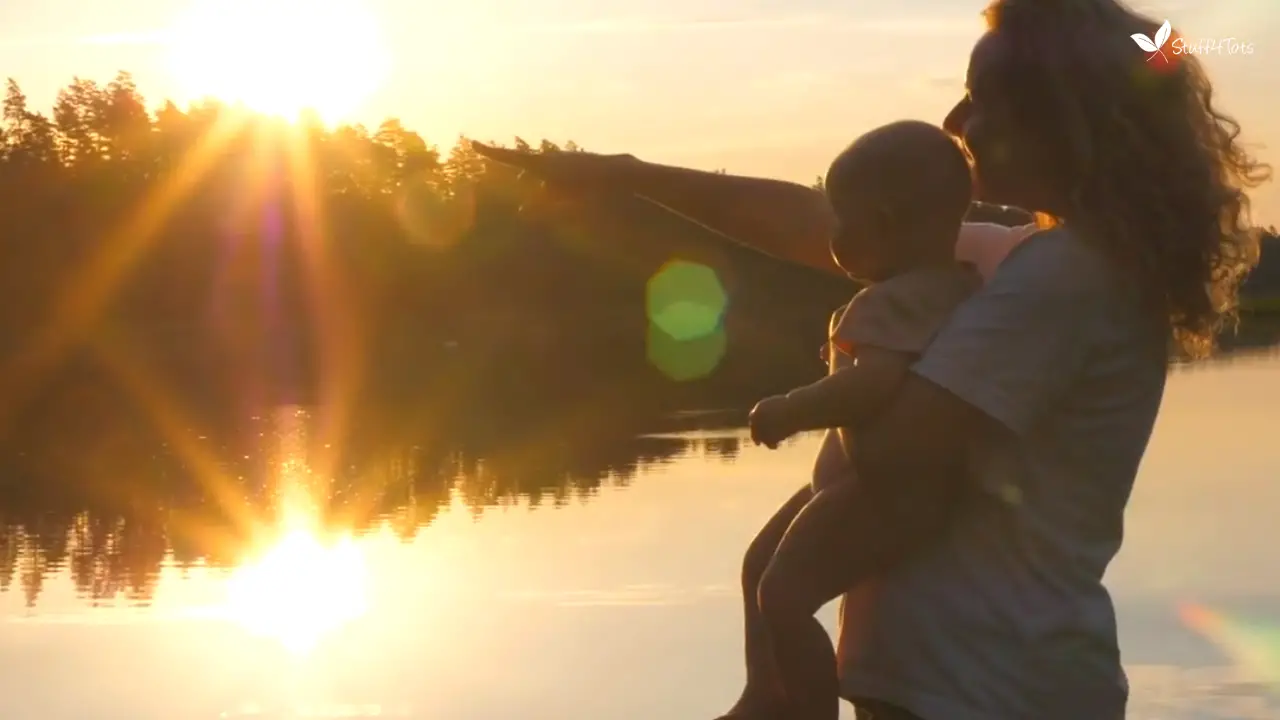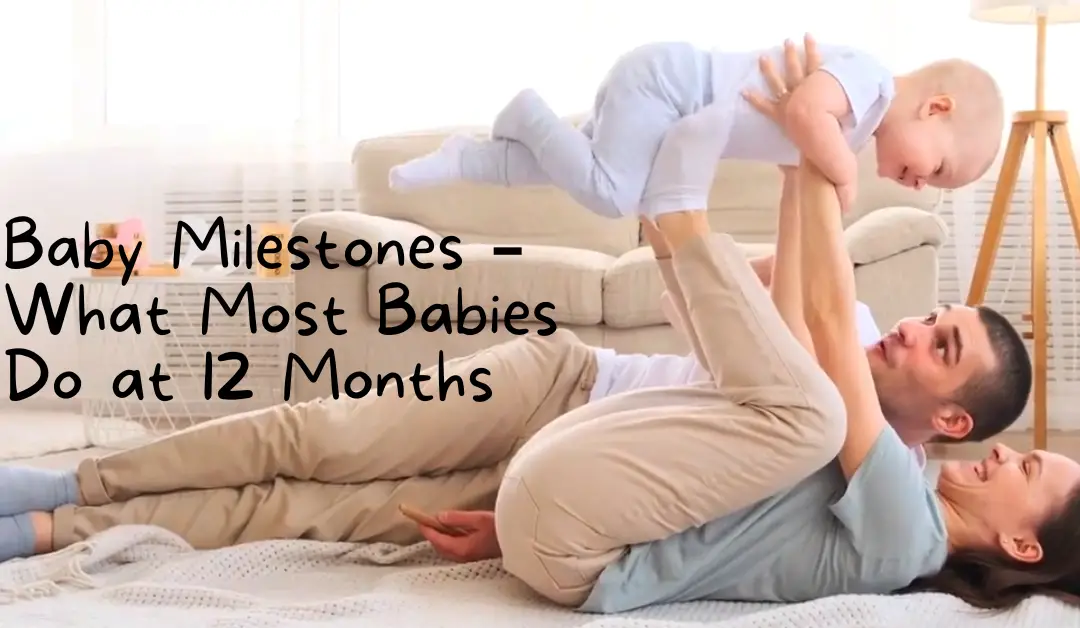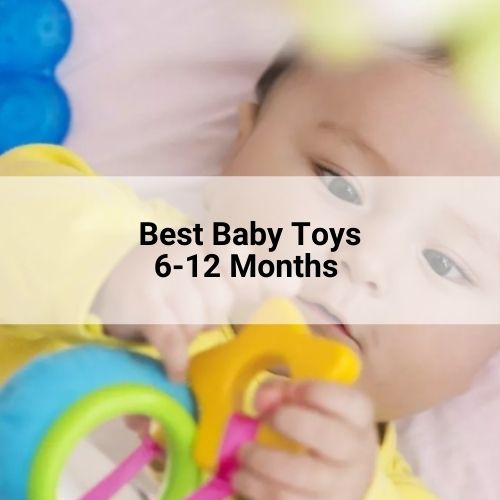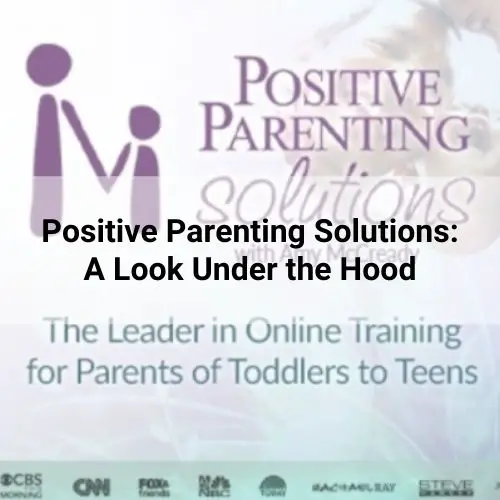Table of Contents
Developmental Milestones
There are things most children can do by a certain age.
It’s helpful to understand the important clues in your child’s development, like how your little one moves, acts, speaks, learns, plays, and interacts.
Join us as we talk about milestones which your child reaches during the twelfth month. These baby milestones are as defined by Centers for Disease Control and Prevention (CDC).
Let’s now explore these first-time actions which are called developmental milestones.
What Can Most Babies Do By Month 12?
First up, let’s look at emotional and social milestones. Your baby:
- Plays games with you, like pat-a-cake
Second, communication and language milestones. Your baby:
- Waves “bye-bye” to you
- Calls you “mama” or “dada” or another special name
- Understands “no” (and stops or pauses briefly when you say it)
Third, cognitive milestones. These include thinking, learning, and problem-solving. Your baby:
- Places an object in a container, like a toy in a cup
- Looks for things that he sees you hide, like a toy under his favorite blanket
And the fourth, movement and physical development milestones. Your baby:
- Pulls up to stand
- Walks and holds on to furniture
- Drinks from a cup without a lid while you hold it
- Picks things up between his thumb and pointer finger, such as small bits of food
You know your baby best.
If you might feel that your baby is not meeting one or more milestones, has lost skills he or she once had, or if your child might have special healthcare needs, please see your pediatrician as early as possible.
During the visit to your pediatrician, it’s important to discuss these things:
- Has your baby lost any skills he or she once had?
- Does your baby have any special healthcare needs or was he/she born prematurely?
Please don’t be alarmed if your baby hasn’t quite hit some or all of these milestones by the end of month 12. Human beings are a varied bunch, and we all develop at different rates.
These milestones are “averages”, and some babies will cross them earlier or later than the herd.
There’s no need for worry about milestones in month 12 but there’s no harm in discussing things with your pediatrician if there is anything of concern.
You Play a Great Role in Your Baby’s Learning and Brain Development
You are your baby’s first and best teacher, and it’s you who can help him or her the most with this learning and brain development phase.
Here are some simple activities to try with your baby:
Teach your baby “wanted behaviors”.
Show him what to do and use positive words or give him hugs and kisses when he does it. For example, if he pulls your pet’s tail, teach him how to pet gently and give him a hug when he does it.
Talk or sing to your baby about what you’re doing.
For example, “Mommy is washing your hands” or sing, “This is the way we wash our hands.”
Build on what your baby tries to say.
If he says “ta,” say “Yes, a truck,” or if he says “truck,” say “Yes, that’s a big, blue truck.”
Redirect your baby quickly and consistently by giving him a toy or moving him if he is getting into things you don’t want him to get into.
Save “no” for behaviors that are dangerous. When you say “no,” say it firmly. Don’t spank, yell, or give him long explanations.
Give your baby safe places to explore.
Baby-proof your home. For example, place sharp or breakable things out of reach. Lock away all medicines, chemicals, and cleaning products.
Should anything unfortunate happen, the number for Poison Help is 800-222-1222 for all phones.
Respond with words when your baby points.
Babies point to ask for things. For example, say “Do you want the cup? Here is the cup. It’s your cup.” If he tries to say “cup,” celebrate his attempt.
Point to interesting things you see, such as a truck, bus, or animals.
This will help your baby pay attention to what others are “showing” him through pointing.
Limit screen time (TV, tablets, phones, etc.) to video calling with loved ones.
Screen time is not recommended for children younger than 2 years of age. Babies learn by talking, playing, and interacting with others.

Tips and Activities for Baby’s 12th Month
Give your baby water, breast milk, or plain milk.
You don’t need to give juice to your baby, but if you do, give 4 ounces or less a day of 100% fruit juice. Do not give your baby beverages that are full of sugar, such as fruit drinks, soda, sports drinks, or flavored milks.
Help your baby get used to foods with different tastes and textures.
Foods can be smooth, mashed, or finely chopped. Your baby might not like every food on the first try. Give your baby a chance to try foods again and again.
Give your baby time to get to know a new caregiver.
Bring a favorite toy, stuffed animal, or blanket to help comfort your baby.
Give your baby pots and pans or a small musical instrument like a drum or cymbals.
Encourage your baby to make noise.
Thoughts
Keep in mind that it’s not exactly when your baby gets to sit up by himself or utters his first words. What’s more important is that they’re progressing with their development.
In our next article, we’re going to discuss baby milestones for 15-month-olds. We look forward to seeing you then!
How’s your 12-month-old doing?
We’d love to hear from you! Let us know in the comments below.
Thanks for stopping by!
Related articles you might also enjoy:





